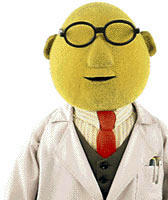There was an odd co-incident topic sharing today between the current comic for Indexed and a story about the fact that several families in the US are currently going to trial cover the fact that the families have withdrawn from medicine to heal their children with prayer resulting in the deaths of the children. In an issue relating Science and Religion as emotional as this where it involves the death of children I would never reduce the pain of the families to something to joke about. I would note however that the Indexed cartoon clearly indicates that prayer is not an effective route to a solution to a problem. This separation model for the roles of Faith and Science is one that we will see again.
You might remember that I said in the first lecture that some would argue that the measure of religious faith and conviction is not to be willing to die for your faith but to be willing to kill. I guess I have to set that measure aside for this kind of faith that would allow your child to die in misery. This just sets the faith / conviction bar too high for me.
LINK TO ARTICLE ON FAMILIES IN COURT
Wednesday, January 21, 2009
Subscribe to:
Post Comments (Atom)




3 comments:
That is really sad! :( And angering! I grew up in a denomination that highly regarded special miracles of God, but they did not reject the use of medicine to do God's work.
I am not sure that the diagram is exactly useful though. First of all, prayer isn't just for complaints. It is for communication with God. Secondly, medicine does not always solve the problem. Thirdly, sometimes God does heal people in a miraculous way. Perhaps I am misinterpreting the diagram, but those are my initial thoughts.
Yes, a theist with a belief in an immanent God would not agree with the simplification of prayer. But let us not forget the image Christ gave us of the persistent widow that got what she wanted. In this week we also have the quote that "An ounce of scientific knowledge could be more effective in controlling the forces of nature than any amount of supplication."
When I was reading this blog entry it reminded me of the Worldview presentation I did last semester on Jehovah’s Witnesses and their views on blood transfusions. Although there are some exceptions, many still refuse transfusions of whole blood or those containing any of the four components of blood: RBCs, WBCs, platelets, and plasma. Some accept transfusions of their own blood; however, it is still not widely accepted. Jehovah’s Witnesses derive their beliefs about blood transfusions from a couple of scriptures in the Old and New Testament. One is found in Leviticus 17:10 which states that “Any Israelite or any alien living among them who eats any blood—I will set my face against that person who eats blood and will cut him off from his people.” They are against blood transfusions because they believe blood is sacred and means life in God’s eyes, and most importantly they believe that blood was set aside only for the atonement of sins, which resulted in Jesus shedding his blood for us on the cross so that we can have salvation. So basically, if they have a blood transfusion they are rejecting that only Jesus’ blood can save them.
There have been cases where children have been dying and the parents asked the doctors to do everything in their power to save their child by medical means except for giving them a blood transfusion. As a result, many children have died because their parents would not go against their doctrine in fear of being disfellowshipped and disappointing God.
I think prayer is a very important part of healing. I believe God will listen to our prayers; however, from experience they will not always be answered the way we would like. Healing in God’s eyes may not be referring to healing on earth. This is not to say that I do not believe in medicine. I think God can use medicine to save lives as well as prayer. This goes back to the lighting rods and bell towers that we discussed in class about God being Sovereign, and because he is sovereign he will allow scientific innovations to improve life for humans. We need to take advantage of the gifts God has given people and the advances in medicine.
As far as the statement that “some would argue that the measure of religious faith and conviction is not to be willing to die for your faith but to be willing to kill,” I think Jehovah’s Witnesses are taking it too far. If the child is also a Jehovah’s Witness and they also refuse a blood transfusion than that would be dying for their faith, but if they want a transfusion and their parents won’t allow it, it’s the parents’ faith that shows they would be willing to kill. I would argue against this statement, because I for one don’t think I would be able to kill someone. It doesn’t seem like it would be an effective way to show how deeply one is committed to their faith.
Post a Comment